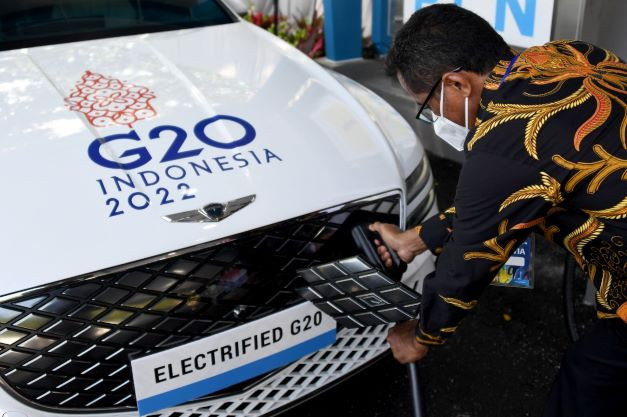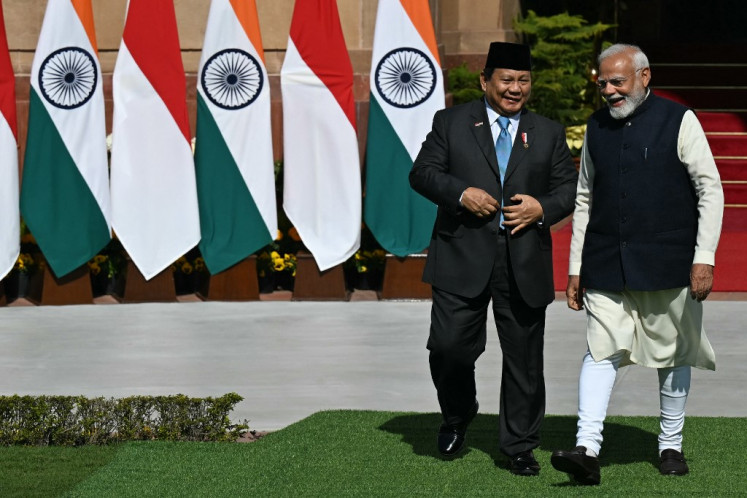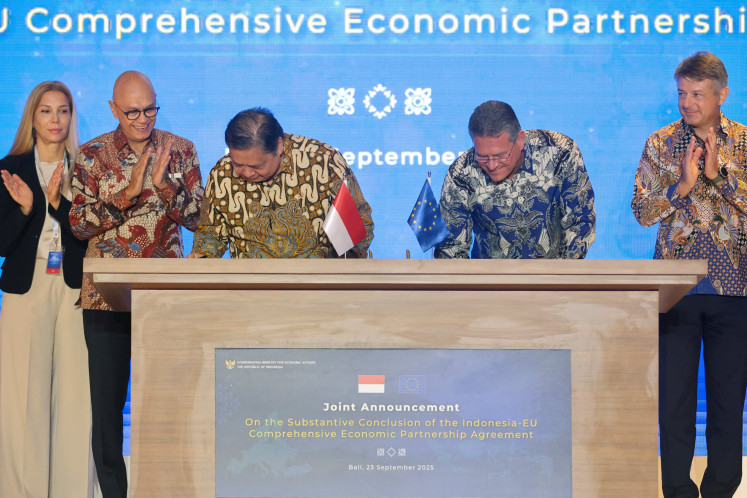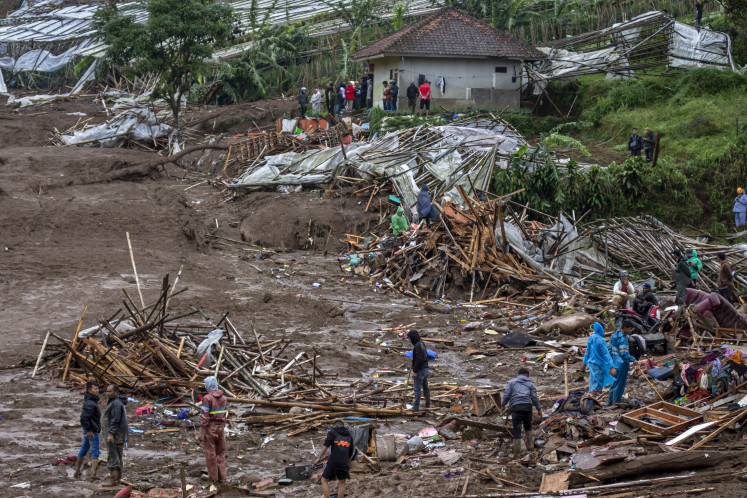Popular Reads
Top Results
Can't find what you're looking for?
View all search resultsPopular Reads
Top Results
Can't find what you're looking for?
View all search resultsAccelerating Indonesia’s journey to net zero is a shared responsibility
As a country with rich natural resources such as nickel, and abundant renewable energy sources, Indonesia is primely positioned to be a driving force in the net-zero industrial revolution.
Change text size
Gift Premium Articles
to Anyone
C
limate change will alter the lives of every person in every country in the coming decades. The effects, which include increasingly severe weather patterns and rising sea levels, are forecast to significantly impact Indonesia. In Jakarta alone, around one third of the city is likely to become submerged by 2050.
A sixth report by the United Nations’ Intergovernmental Panel on Climate Change (IPCC) released in August last year confirmed unequivocally for the first time that human activity is responsible for the changes occurring to our climate, that some of the changes are irreversible, and that only rapid and drastic reductions in greenhouse gas emissions can now prevent widespread devastation.
As already one of the world’s largest emitters, the fourth most populous nation, and with fast growing industrial and manufacturing sectors, reducing emissions in Indonesia in years to come is of both national and global importance in the fight against climate change.
This will require a multi-stakeholder and multi-sectorial approach, and it is likely to be the biggest challenge Indonesia and other nations face in the coming century.
In July last year, Indonesia tabled its Long-term Strategy for Low Carbon Climate Resilience 2050, which outlines a plan for achieving decarbonization in the power sector while balancing social and economic interests. This includes a focus on carbon capture, utilization, and storage since coal will need to remain a core part of the local energy mix.
Currently, more than 90 percent of Indonesia’s electricity supply is generated from fossil fuels, with coal comprising the vast majority of this. While it’s accepted that step changes to Indonesia’s energy mix, particularly in respect of coal, would be challenging in the short term, capacity from these sources should increase over time as more investment becomes available.
During this transition period, technology will play a vital role. In the immediate term with considerable increases in electricity demand and consumption driven by population growth, per capita consumption increases, and commercial activities, efficient management of energy resources is critical. New technologies, such as those powered by artificial technology of things (AIoT), can dramatically improve efficient energy use – reducing wastage and thereby emissions.
In the longer term, as renewable energy capacity increases, these technologies coupled with battery storage technology will be critical for energy management and grid security as renewable sources produce a less constant and more changeable energy supply compared with their fossil fuel counterparts.
Investment in energy management technology is also critical for the development of green buildings and Electric Vehicle (EV) infrastructure as Indonesia rapidly urbanizes and mega cities grow. The country is already progressing rapidly ahead in its transition toward smart city infrastructure to improve the standard of living for citizens and protect the environment, which are among the key pillars as part of its 100 Smart Cities Movement.
Notably, as a result of government support, Indonesia has made great strides in developing green buildings and implementing green building standards in major cities, with the aim to lower building energy intensity by 1 percent per year till 2025. Beyond green infrastructure, the government is also setting supportive policies to drive EV adoption and increase affordability.
As a country with rich natural resources such as nickel, and abundant renewable energy sources, Indonesia is primely positioned to be a driving force in the net-zero industrial revolution. This can stimulate an increase in green investment and green jobs as well as strengthening bilateral and trade relations with other markets – particularly as focus on scope three emissions intensifies.
Indonesia’s roadmap to enter the fourth generation of its industrial revolution, ‘Making Indonesia 4.0’, further underscores the importance of promoting sustainability in the industry value chain - ranging from manufacturing to production. This sustainable movement holds the potential to help strike a good balance between emissions reduction and economic growth.
The proof of what’s possible in industrial can be seen when looking globally. As an example, we are building the world's first Net-Zero Industrial Park in Ordos, China, an autonomous region which has vast coal reserves, accounting for 18 percent of the country's total. Like Indonesia, Ordos is a city with rich natural resources, which urgently needs industrial upgrades to transition to net-zero and the park boasts significant features to power the energy transition. These include a 100 percent green energy supply system, and a comprehensive industrial cluster.
Among the investments required, creating opportunities for partnerships to thrive is critical to reducing the effects of climate change in Indonesia and everywhere. This is especially true as Indonesia’s economy advances and the government work towards becoming a developed country by 2045. No one government or company has all the answers so sharing of insights, knowledge, and technology is of the utmost importance.
As global cooperation increases, particularly through forums such as climate conference and others, these opportunities will become more prevalent.
With the right ingredients of partnership, technology, vision, and collective action, I am optimistic for Indonesia’s net zero future and believe the country can be a leading example of successful decarbonization.
***
The writer is global executive director at Envision Group.











